Bill & Ted Actor Alex Winter Claims Criticizing Film Critics Is Part Of “Pervasive, Growing Contempt For Scholarship, Expertise, And Intellectual Critique”
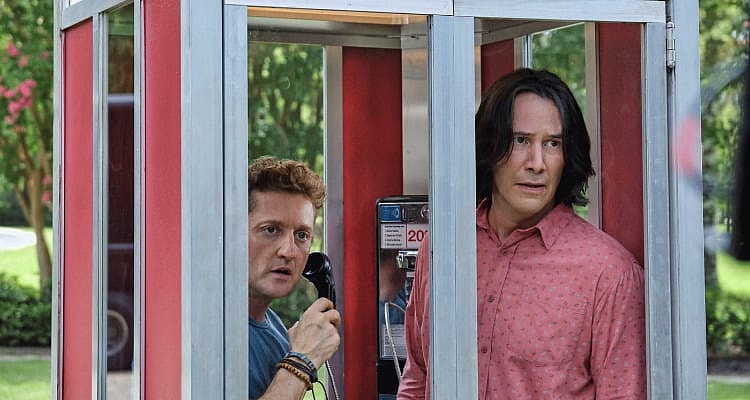
Bill & Ted actor Alex Winter recently claimed the critiquing film critics is part of a “pervasive, growing contempt for scholarship, expertise, and intellectual critique.”
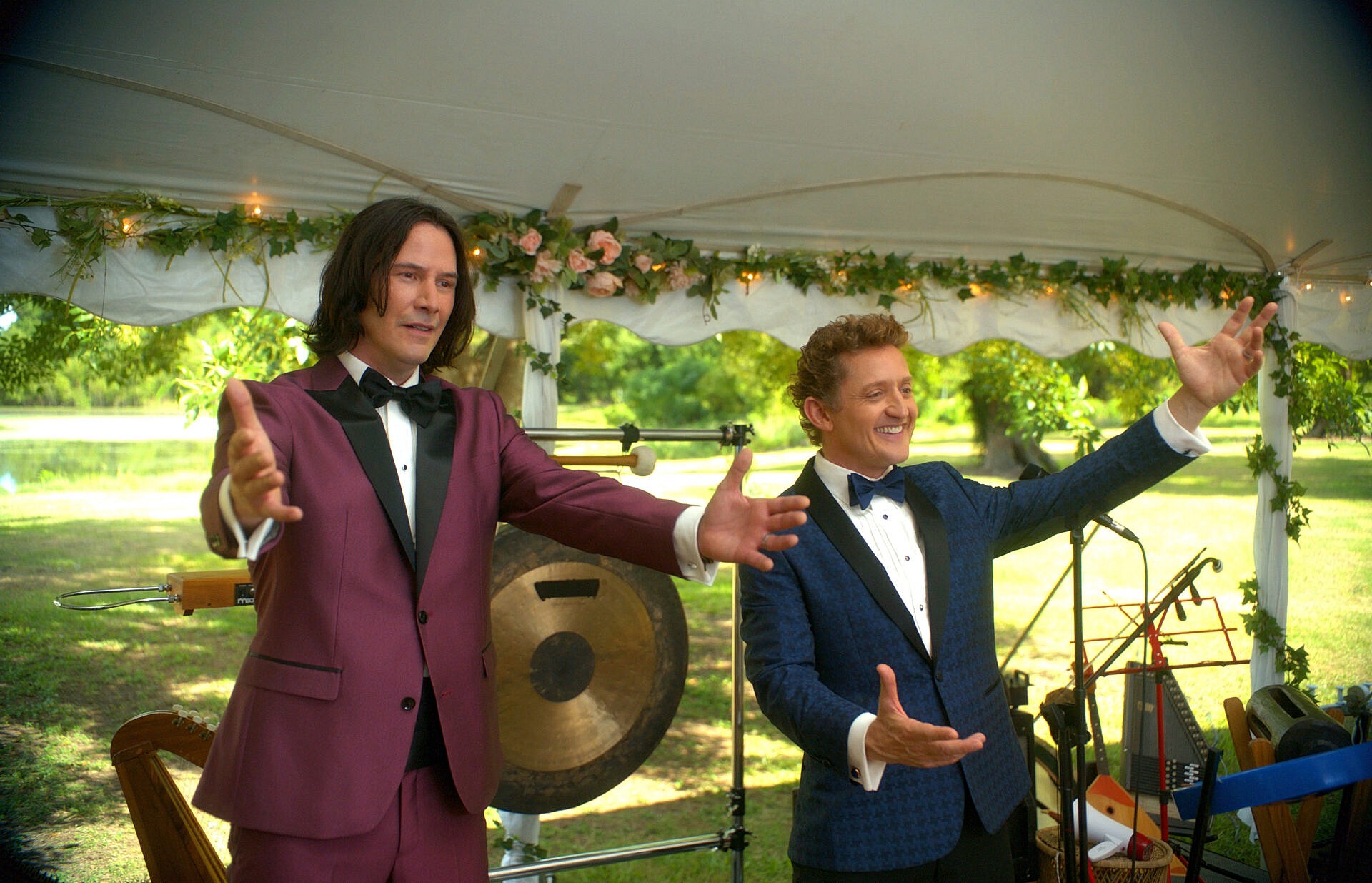
Winter’s comments seemingly come following backlash to critic reviews of the recently released Netflix film Don’t Look Up that follows “two astronomers [as they] go on a media tour to warn humankind of a planet-killing comet hurtling toward Earth. The response from a distracted world: Meh.”
The film is about climate change according to its director Adam McKay. As part of a conversation with director Joe Wright published by Variety, McKay stated, “It came to me from the place that a lot of good ideas come from, which is stark terror. This has been building for 10 or 12 years, where the climate crisis and everything I’ve learned about it just seems worse.”
He added, “A friend of mine, David Sirota, made a joke about it, that a comet is going to hit Earth, and no one cares. Little did I know that a once-every-200-years pandemic was heading towards us.”

McKay and the film’s writer David Sirota, the former speechwriter for Bernie Sanders, would respond to critics criticizing the film.
First, McKay tweeted, “Loving all the heated debate about our movie. But if you don’t have at least a small ember of anxiety about the climate collapsing (or the US teetering) I’m not sure Don’t Look Up makes any sense.”
He explained, “It’s like a robot viewing a love story. ‘WHy ArE thEir FacEs so cLoSe ToGether?'”

RELATED: GamerGate To Blame For Washington D.C. Protests, Claim Mainstream Video Game Media Personalities
Sirota would add his own thoughts writing, “Not surprised that an aide to a morning TV show host doesn’t like our film. Fine.”
“What’s annoying is that instead of admitting to its refusal to cover climate and having more scientists on its airwaves, CNN is deciding to instead publish whatever this is,” he added.
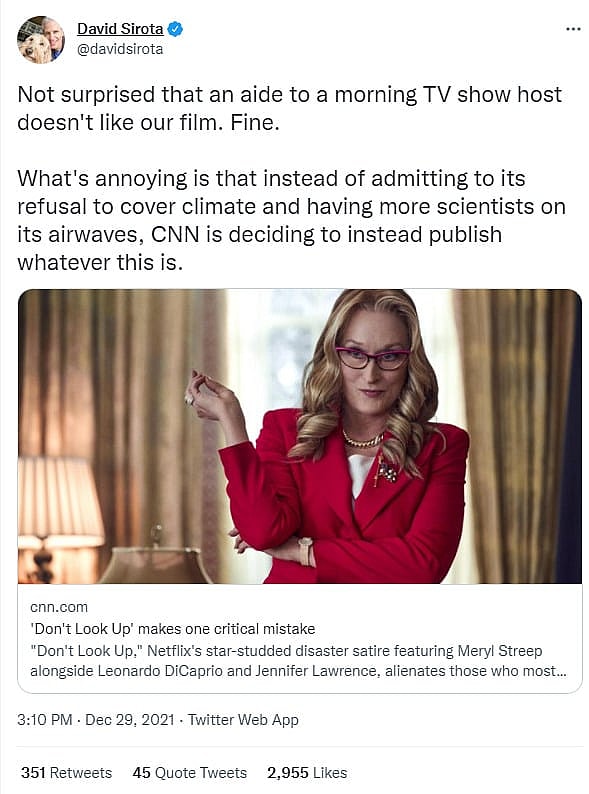
Winter would engage in this debate by initially responding to comments made by Slate’s Senior Editor and film critic Sam Adams.
Adams tweeted, “If movie critics are skeptical of DON’T LOOK UP it may be because they’ve spent the last 15 years or so cutting slack for well-intentioned movies about climate change that ended up changing precisely nothing.”
In a follow-up Adams added, “I wrote an alt-weekly cover story about AN INCONVENIENT TRUTH and I don’t regret it, but I would also be lying if I said I believed it made an iota of difference.”
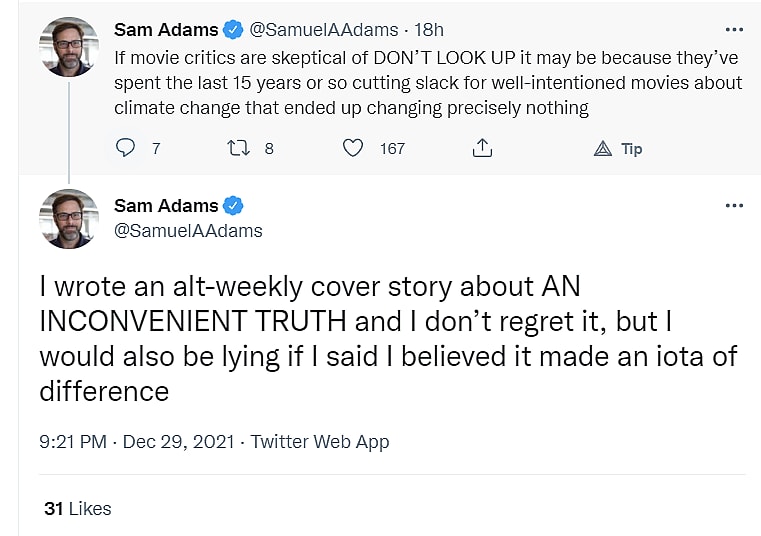
Winter responded, “This is something every (honest) doc director lives with; doing the work without expectation of moving the needle. Making well-told, compelling stories is hard enough and has to be the end game. The rest is out of our hands.”

Adams replied, “It is an almost impossible standard to set (although as I am sure you know, documentary funders love to engage the possibility). And I love stories just for being stories! But when the filmmakers are out there saying it’s their endgame, etc”
“Yes I think it’s dangerous to make impossible promises to financiers and festival/awards folks, and clouds the ability to just make good work. I’ve told financiers our films may not change a damn thing and shouldn’t have a central ‘takeaway’ and sometimes they do bail out,” Winter responded.
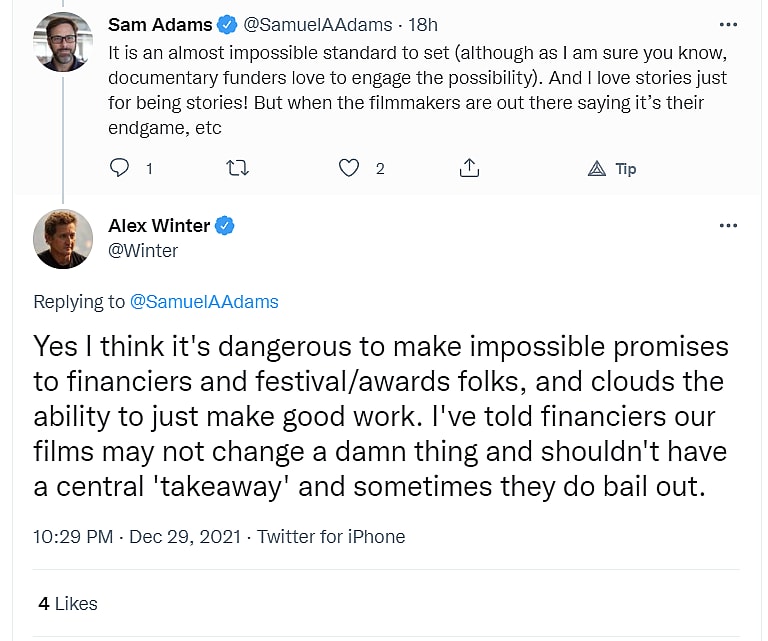
Winter would then tweet the next day, “The current targeting of film critics as the enemy of the people would be laughable if it didn’t speak to a pervasive, growing contempt for scholarship, expertise, and intellectual critique, accompanied by a moral imperative being imposed on culture.”
“That’s scary,” he added.

However, film critics are bought and paid for by film studios and they have even admitted it.
SyFy Wire’s Dany Roth said as as much during SyFy Wire’s podcast “Who Won The Week” back in 2019 alongside SyFy Wire’s Editor-in-Chief Adam Swiderski and Contributing Editor Karama Horne.
Roth says on the podcast, “Here’s the actual reality. Here’s where we actually are in the industry if you want to talk about quote access media.”
“Every single person that wants to have access to things early, that wants to get access to things so that traffic is drawn to their site will on occasion–everybody at this podcast, everybody in our industry occasionally has to play softball, occasionally has to look, you know, the other way a little bit. Everybody has to do it,” he stated.
Roth explained, “In the sense that I hated a movie, but I won’t say that I hated a movie. Or an actor behaved a sort of way, and you don’t want to put it out there that that happened.”

“Right, because you might not get the next review,” Horne chimed in.
Roth continued, “Right. To some degree everybody in our industry that is part of this quote on quote access media has to sort of decide which battles they want to pick. Which of the ones where my voice is the one that has to get said.”

RELATED: Ron Howard Calls Out Film Critics For Injecting Politics Into Their Reviews Of Hillbilly Elegy
Not only are film critics bought and paid for, but many of them also attempt to push disordered behavior and the current regime’s propaganda through their reviews.
Director Ron Howard called out film’s critics after they lampooned his Hillbilly Elegy film last year.
In an appearance on CBS This Morning he stated, “Well, look it’s always hard to say and critics have a job, which is to see something, run it through their lens, and write, and talk about it. So I can’t argue with it.”
He then added, “I do feel like they’re looking at political thematics that they may or may not disagree with that, honestly, are not really reflected or are not front and center in this story.”
“What I saw was a family drama that could be very relatable. Yes, culturally specific, and if you’re fascinated by that, I hope you find it interesting. If you’re from the region, I hope you find it authentic because certainly that was our aim and that was our effort. But I felt that it was a bridge to understanding that we’re more alike than we are different,” Howard concluded.
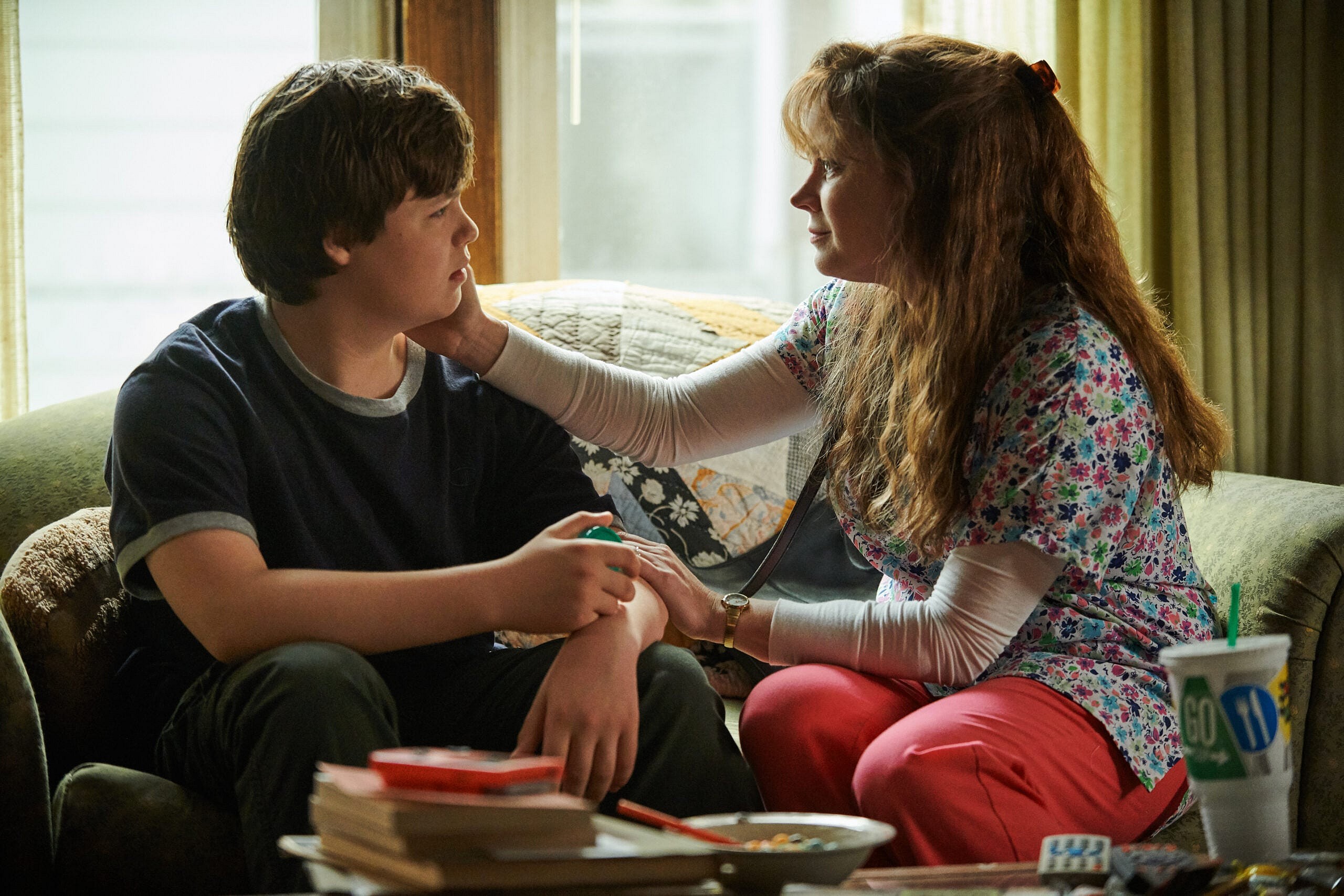
What do you make of Winter’s comments? Do you agree with him that criticizing film critics is part of a “pervasive, growing contempt for scholarship, expertise, and intellectual critique, accompanied by a moral imperative being imposed on culture?”
NEXT: Bette Midler Apologizes After Describing West Virginians As “Poor, Illiterate And Strung Out”
